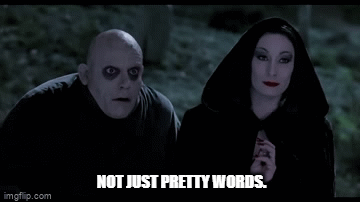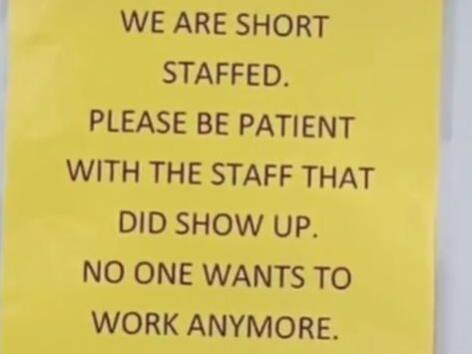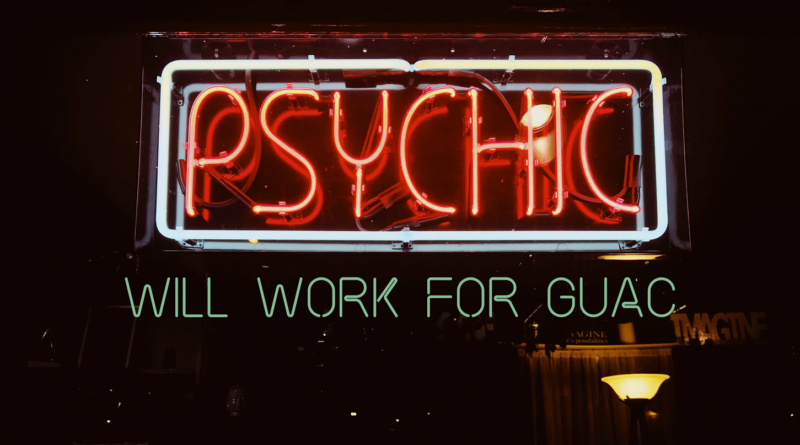Update: COVID Economic Impact Did, In Fact, Have Historical Precedent
On March 18th 2020, I hit “publish” on an article detailing the long-term COVID economic impact on the economy. I used medieval records of the Black Plague’s effect on the economy for reference and extrapolated the data for modern day insights. As it turned out, that was the right call. Out of my seven predictions, six of them have turned out correct since then. “History repeats itself,” indeed.

The ones I’m most happy about nailing are my predictions about a labor shortage causing heightened demand and better working conditions. It warms the cockles of my heart to see the labor force finally, finally pushing back against asinine business practices. This shit was LONG overdue and desperately needed. Other predictions, unfortunately, are also true – like the fact that companies are pushing back on adapting better business plans. But we’ll get to that.
More than one person (okay, two) have asked me for an update post on this. And boy howdy am I happy to deliver.
More History Notes
Aside from being the newest example of history repeating itself, this also proves there IS a historical precedent to the economic impact of a global economy. Too many people have this backwards view of the Middle Ages as full of backwoods mysticism, widespread ignorance, and horrible hygiene. Let’s set aside for a moment that those terms can very well describe much of America today; I’m more interested in pointing out how egregiously wrong those impressions are. Medieval times were a lot more sophisticated than pop culture gives it credit for, especially places with a lot of Islamic influences like Al-Andalus (modern-day Spain) that had working streetlights, paved streets, and libraries galore.
They also had international business organizations. Remember the Compagnia dei Bardi and Peruzzi I mentioned in that March article? Peruzzi had fifteen branches across Europe and the Middle East, including places like London, Naples, and Paris. Bardi was 50% larger than them, which, at face value, means they had to have at least 22 branches throughout Europe and the Mediterranean. Or, at least, they did until the 1340s when they went kaput. Right about the time the Black Plague begins crashing through all of Europe, for those keeping score at home.
Given all of these similarities, the only reason why no news sites have discussed this is because no one’s going back far enough. I’ve noticed that journalists today only like to claim something has “historical precedence” if it’s happened in the last 100-odd years. 200, if they’re especially zealous. You shouldn’t take that to mean the rest of history has zero bearing on us today.
Nothing could be farther from the truth.
One dude born 2,300 years ago still has his military tactics taught in schools worldwide. Another dude founded a world religion observed by billions of the current global population. The architecture techniques from Ancient Egypt are still used to build long-lasting structures. People have lived in (what is now) Mexico City since at least 7000 BCE. The list goes on from there. History has shaped your lifestyle, diet, ancestry, spiritual beliefs, loyalties, citizenship, and even your DNA going back millennia. Pretending or believing otherwise is only hurting yourself. Take it from me, studying history (ALL of history) means you’re understanding more of the world no longer limited by your own inexperience.
I’ll get off my soapbox about the past now so we can talk about the future. Or, moreso, what is now the future a year plus after COVID caused the first economic impact. Onward!
First Prediction: Correct
Prediction #1 was, and I quote, “Companies will offer more fringe benefits and higher wages”. Harvard Business Review and Care.com have shown that 98% (yes, really, ninety eight percent) of business/HR leaders plan to expand their benefits packages. I’m seeing that at my own company. After Labor Day my company is requiring I be in the office at least twice a week, which sucks, but that means I can get at least three days where I can work from home. Officially. Before that I would’ve been seen as a loser loner for fighting to work from home just one day a week; pre-pandemic only superstars from superstar corporations could nab a nice WFH situation.
It’s not just more remote work that’s being offered, either. I got a great raise and a huge bonus this year as well; the executive team explicitly stated it was given thanks to our work during unprecedented times. While my company is pretty generous already, we’re also seeing stingy companies offering better benefits. Even the stingiest company of all, Walmart, is (probs reluctantly) giving part- and full-time employees better benefits than they had last year. Specifically, raising wages for 425,000 workers and – oh yeah – covering full college tuition to certain universities. What! That’s the same corporation synonymous with “starvation wages”. If they’re doing it, many more are about to follow suit.
Second Prediction: Correct
I got my second prediction correct as well, albeit in spirit. I predicted companies will try “to change the law to screw you over”. And they have tried to change the law in different ways, like keeping the federal minimum wage at the unsustainably low $7.25 an hour. But that’s not the most significant law they’ve tried to change. You see, I posited the law would be the legal kind of law, not something like, say, a basic law of economics.
In a word, productivity has risen. As freshman students learn in introduction to microeconomics, wages tend to equal productivity. They cannot get too far out of line before market forces tend to equate them.
The Orange County Register
It’s not just the wage and productivity relationship we should talk about, but supply and demand. When there’s a lot of demand for a product, prices go up. When there’s a lot of demand for employees, wages go up. Duh.

But for all the fancy advanced degrees and connections corporate managers have, it seems ECON 101 is missing from their repertoire. Instead of doing the obvious solution and raising wages, too many are choosing to stick their dumbass heads in the sand. They downright refuse to believe their shitty scheduling, Byzantine hiring practices, tired benefits structure, and stagnated wages have anything to do with the fact that nObOdY wAnTs To WoRk AnYmOrE. They’ve been clamoring for these working conditions for years prior, after all!! Cash is king!!!
Except these times are no longer like the years prior.
Nowadays, you don’t just have that horrible list of bad working conditions. You’ve also piled onto it their sudden heightened vulnerability to a deadly/disabling disease management is doing next to nothing to combat. Coworkers and their loved ones are either dead, dying, with huge medical bills from hospitalization, or fully unable to do the work they once did thanks to lifelong side effects. The COVID economic impact isn’t just to what people buy, but how they work too.
I haven’t even touched how many more have to take on the burden of childcare or elderly care to boot. The childcare bit is especially important for two reasons:
- There are currently zero vaccines available for children, meaning zero protection against COVID, and
- If kids catch COVID, it can lead to lifelong medical complications. This includes children who are asymptomatic or have mild cases.
The depressed pay wages are no longer worth risking health, life, and loved ones for. The companies still holding out are hoping the rest of the world changes “back to normal” before they’re forced to close or – gasp! – pay workers a livable wage. Which brings us to the next prediction:
Third Prediction: Correct
I said “Demand for talent will go up, as will wages,” and, despite pushback from stagnant companies, that turned out correctly. Look, the current job market on all levels – from your minimum wage grunt work to your cushy salary variety – has shrunk. I got some pushback in my last article with a commenter raising the question of “how this virus that kills a statistically irrelevant number of people from the labor pool will create skilled job shortages”. The answer is: because this virus takes people out of the workforce for reasons other than death.
What’s increasingly clear is that after the coronavirus pandemic delivered an unprecedented shock to the global economy, putting tens of millions of people out of work and displacing many others, the job market will never be the same. Trained workers are stuck in the wrong places. Others have retired early, are skeptical about going back to work in the face of lingering health concerns, or are having difficulty securing reliable child care.
Julia Horowitz, CNN journalist
There are a couple of coworkers of mine who have caught COVID and are open about discussing how it’s affected them. In both cases they now have to deal with heightened anxiety, which makes a difference in how they behave that I’ve noticed. They are both, fortunately, working in roles that are not in high-pressure environments. Do you know what jobs do cultivate stressful environments? Restaurants and retail, which are the most public examples of the labor shortage. Less talent in those sectors means a smaller labor pool. You want more workers, raise your wages. As discussed for Prediction #2, it’s just basic economics.
Part 2 Coming Soon
I’ve got four more predictions to put to the test with the overall COVID economic impact, which I will in the next article after this one. Otherwise this article would be over 3,000 words and be an absolute monster to wrangle. Keep an eye out and think over what I’ll say for Predictions 4-7; I think it’s pretty obvious which of those I got horribly wrong.
Cover image credit: Ioana Cristiana via Unsplash


Nice post! You did nail 6 of the 7 predictions, and I am guac-king at your omniscient prowess. History happens to be one of my favorites subjects to read about so kudos to you on incorporating it, and further kudos to whipping this out so fast. Dang.
“Guac-king at your prowess” I try my best to impress 🙂
Pingback:Predicting the COVID Labor Shortage Impact, Part 2 - We Want Guac
Pingback:5 Years Check-in: Half a Decade of Pursuing FIRE - We Want Guac